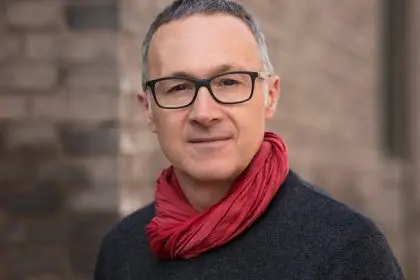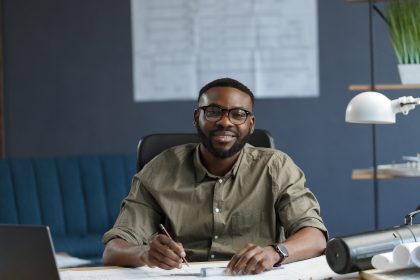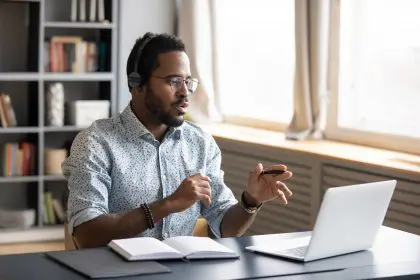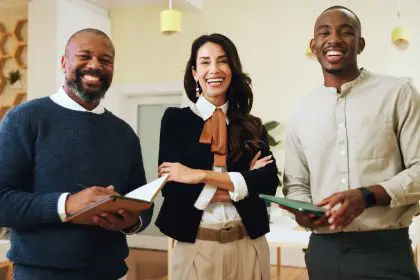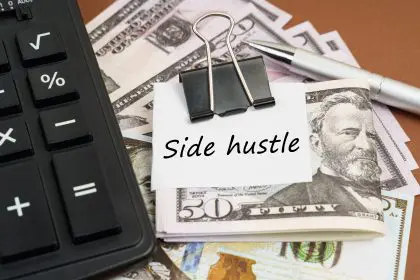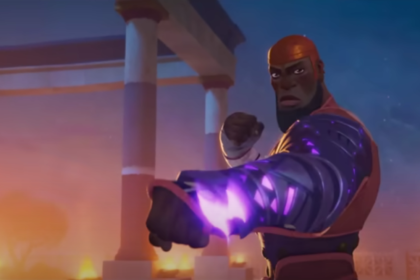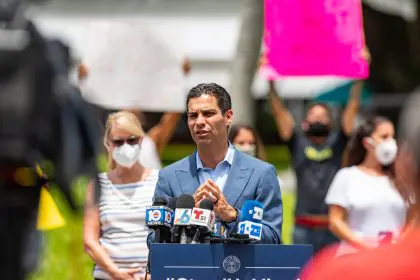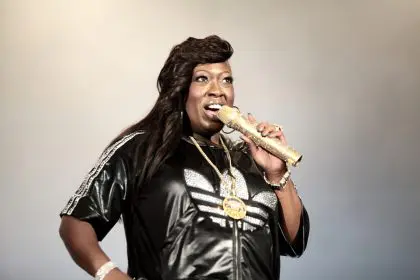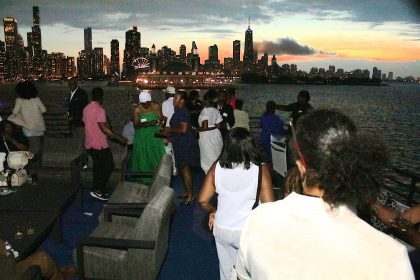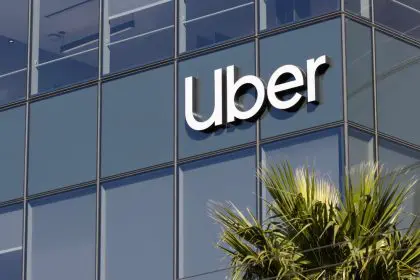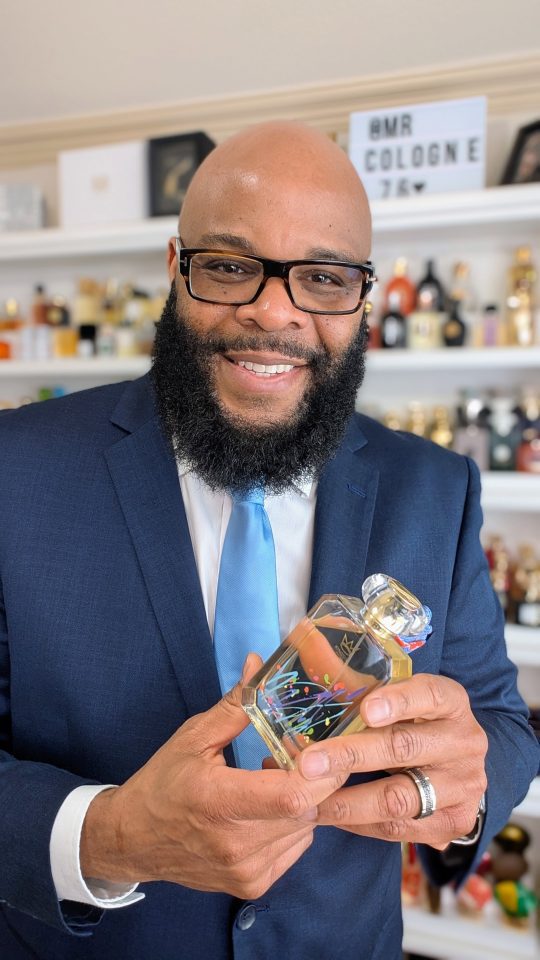
Glenn Davis has spent eight years as mrcologne76 becoming a master influencer in the fragrance industry, but he noticed a glaring gap: Black-owned fragrance brands weren’t getting the visibility they deserved. The U.S. Navy veteran and perioperative nurse turned fragrance strategist didn’t just document the problem — he created the solution by founding Black-Owned Fragrance Week (BOFW), now in its fourth year and expanding to an in-person event in Dallas in June 2026.
The Trinidad-born Instagram savant inherited his love for scents from his late father, transforming that passion into a platform where he delivers expert fragrance breakdowns, exclusive industry interviews, and connects enthusiasts with both emerging and established brands. His polished approach and deep industry knowledge have positioned him as such a trusted voice that perfume retailers actively seek his reviews and collaborations for product launches and sample giveaways.
What started as content creation has evolved into institution building. Davis has contributed as a guest writer at prestigious perfume tradeshows, served as a social media representative for respected fragrance blogs, and through BOFW, created a space where origin stories are shared and small brands transform into household names. As he prepares to bring his digital movement into physical spaces, Davis exemplifies how one person’s platform can reshape an entire industry’s approach to representation, excellence, and access.
What sparked your mind to build Black Fragrance Week and offer the community its own fragrance week?
There was no centralized platform truly built to amplify Black-owned fragrance brands. You had incredible artistry happening across the country, but too often it was happening in isolation. BOFW was created to close that gap — to give these brands visibility, connect them to audiences ready to support them, and offer a space where community, creativity, and commerce could meet.
How did you see this personal journey, remembering scents from your past? What was your approach?
Scent was one of the first ways I understood identity. My father’s cologne was more than a smell — it was his presence. Years later, when I started sharing my love of fragrance online as @MrCologne76, I saw that same connection in others. BOFW came from that place — the personal turned collective. It wasn’t just about scent. It was about representation, pride, and building a space where our stories are centered.
What were some of the early strategic moves you made to create a fragrance week when many say, “What is that?”
I treated BOFW like a cultural moment, not just a campaign. From day one, we had a clear timeline, a recognizable identity, and a purpose people could rally around. We launched with a focus on storytelling, offered ways for brands to participate through self-nomination and promotions, and made space for conversation — not just sales. The structure gave it legitimacy, and the community gave it life.
As you monetize this opportunity, what is the strategy for inviting brands into your platform?
Our strategy has simply been to create a space where this conversation is happening. We are creating a space for the brands, the perfume lovers, and commerce to naturally happen. Now we’ve been intentional about who we are attracting. We want to attract people that want to support Black-owned fragrance brands.
We’ve created this buzz that happens strategically every year, and brands are starting to see it. Brands want to come on board. Brands want to get involved, and it creates an opportunity for them to be amplified, for them to be put in front of customers who also want to be intentional with where they put their dollars. If you’re out there and you’re a brand, reach out to us, reach out to myself, reach out to Black owned Fragrance Week, so we can get you on the platform and give you that visibility.
What do you think the future holds for you and the individuals who can now come together during this week?
In addition to the community and fellowship, I think the thing that really encapsulates what we do is culture. I have created a cultural movement. And now people are starting to talk about Black-owned Fragrance Week like it’s an actual thing. The very next extension of what we have built, black-owned Fragrance Week was the spark.
But now we’re getting into an in-person event. This way we can have in the same room, we can have the customers, we can have retailers, we can have wholesalers. We can have the brands, and really create more infrastructure for Black-owned fragrance brands.
What model of Black Fragrance Week are you leveraging to bring together that in-person convention experience?
BOFW created the spotlight. The BIPOC Scent Expo builds the stage. It’s happening in 2026 and will bring together fragrance lovers, brand founders, retailers, and investors under one roof. Think panels, pop-ups, and wholesale conversations — not just discovery, but infrastructure. It’s the next step toward lasting impact. The Expo makes the movement tangible.
How do you imagine the two of you working together, making a difference for future generations in this space?
One, the fact that we are celebrating Black-owned fragrances, it legitimizes what we’re doing. It really communicates to anyone out there that’s watching that, “Look, this is a viable option,” and as you said, it’s a multi-billion-dollar industry, so there is room for everyone at the table, and you don’t have to feel like, you’re not up to the standards of other fragrances. In different markets, we are making beautiful fragrances that are up to the standard of all the other brands I’ve experienced.
What are three things you would say to someone beginning to start their own Black fragrance organization?
I would tell them to tap into the community. Tap into the community of people that are willing to support, use the leverage of content creators within that community. Tap into them. Also tap into the brands, have conversations, create a space that the brands could come and tell their story. People connect with people, people don’t connect with perfume.
They connect with people and once you’ve created that space to have them come and tell their story, the connection is going to naturally happen. Once that connection has happened, you do have to make a good product. You can’t come to market with a subpar product. Do your homework, speak to other well-established brands, find out what they’re doing, and as a community. Last thing I would say is, if we are willing to help others that are following in our footsteps, I think we would be an unstoppable force.
What have you learned about yourself as an entrepreneur and institution builder?
I’ve learned that I have a true responsibility to use my platform for the upliftment of our culture. I’ve learned that I am able to pull people together to create something larger than myself, and more than anything, I’ve learned that I need to lean into this help and support of others, and I’ve been blessed. I have a wife that stands by me with everything that I do within my personal brand and the Black-owned Fragrance Week, but I’ve had some wonderful souls show up to help do the work, and being able to say yes is an amazing thing.
What are you getting ready to document as it relates to your history? Will you write a book or create content about this journey?
That’s a great question. The legacy I want to leave behind is one: Black-owned Fragrance Week. I want this to be an institution, an establishment that’s doing more than just having conversations. I think there’s real potential in creating a space for education, creating a space for commerce, creating a space for community upliftment, pulling our culture together from a personal stance.
Yes, I have had conversations about, having a book. I have dreams of maybe having a sitcom that’s based around fragrances in the Black community. No one’s doing that. No one’s having these conversations. Yet we all wear fragrances. We all have personal stories with them, but no one’s telling the stories.
In your downtime, what do you do to stay sharp? What do you read?
Beautiful question. The most important thing in helping me stay level through all of this is family time. My wife and I, we enjoy watching television. We enjoy traveling. We enjoy going out to fine dining, and when I say fine dining, I don’t want to create the impression that it’s all about the cost. It’s more about the experience and the customer service. So family time is number one.
The second thing is, I am a perpetual learner. I’m always, almost always doing something to increase my knowledge. And that could be a book, that could be a YouTube, that could just be stuff even on Instagram. I’m a perpetual learner, and I believe, more importantly than knowledge being power, the right knowledge is a real superpower. So I’m a perpetual learner.
How are you leveraging AI in your work with Fragrance Week?
AI is amazing. Anyone that’s watching this, if you are not harnessing the power of AI, you are missing out. I use AI on a daily basis, not only as a content creator, but last year, in the last iteration of Black-owned Fragrance Week, a lot of the assets, a lot of the intake software that we developed for Black-owned Fragrance Week, a lot of just the scheduling of the events during Black-owned Fragrance Week was done with the help of AI. I think there’s a real potential there. And if people aren’t afraid to learn about AI, it’s going to unlock people’s superpower.
If you were giving a speech at a business school, what would the title be and what challenges would you address?
That’s a good question. The title of the speech would be “The Guy from the Tiny Island, Trinidad.” Okay, I came to this country at the age of 17, immigrant family, and I was able to not only succeed in what I’m doing now within the fragrance space, but I have a professional career that I’m also very proud of, and I have been able to build something that has international presence.
So, if the guy from the tiny island of Trinidad could do it, then they can as well. Some of the challenges that they can anticipate: being a leader isn’t always easy, isn’t always popular. You have to make hard choices. You have to do things that are sometimes polarizing, that push people into uncomfortable positions. You have to know how to navigate those things. You have to know how to treat people with a certain degree of humanity, which I feel like is being degraded a little in society today, so I would tell them that, that would be a challenge: to dig deep and always keep humanity first.
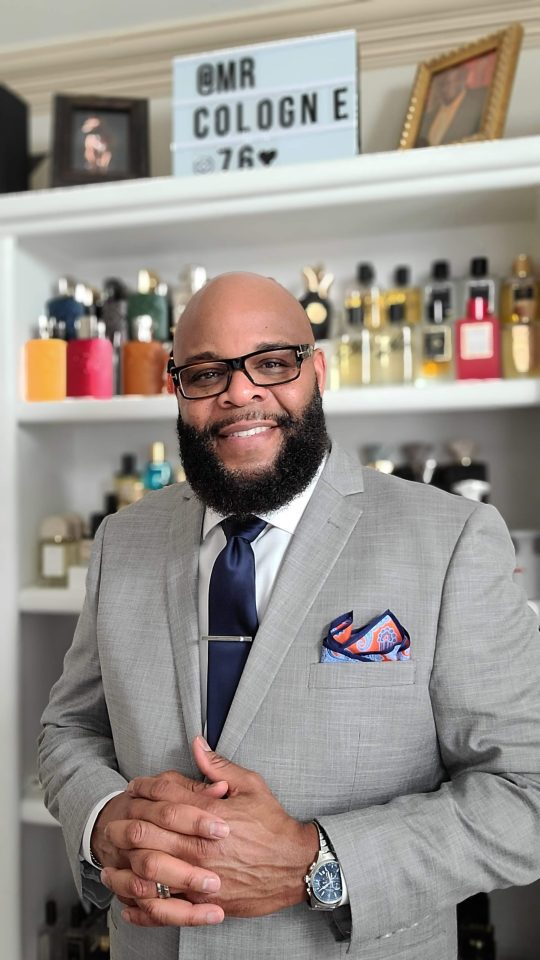
Video interview with jessica CARE moore coming soon. Check back shortly to watch this exclusive conversation.

